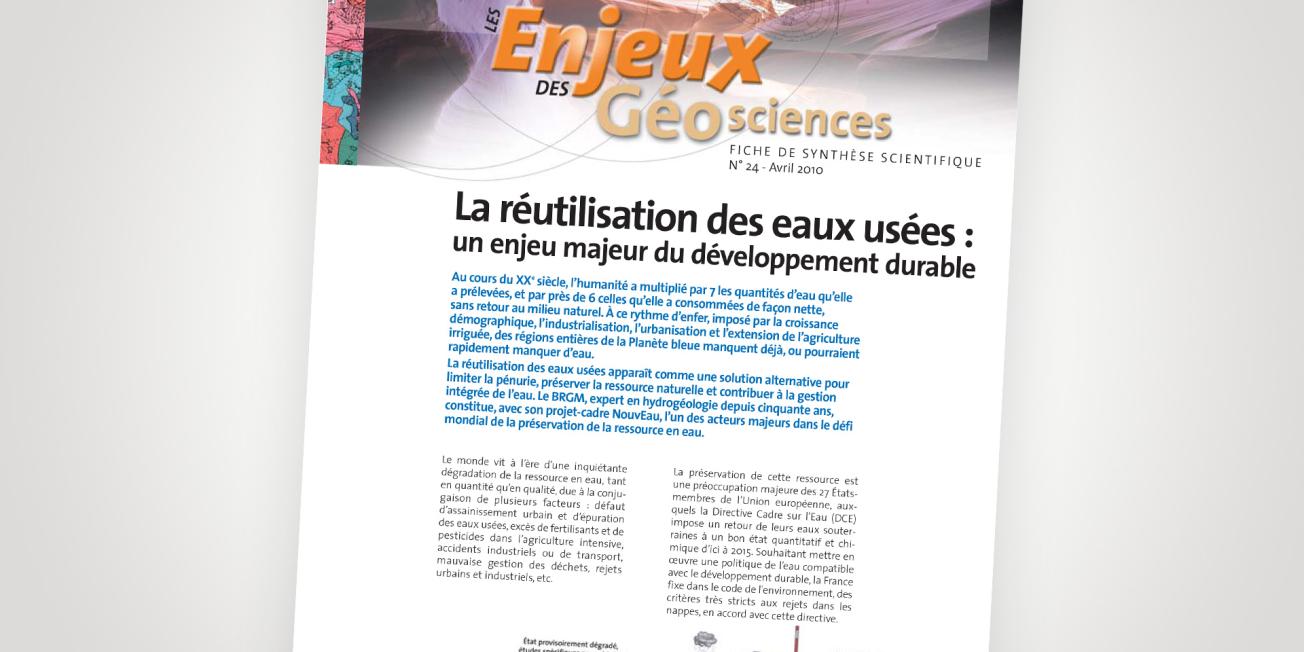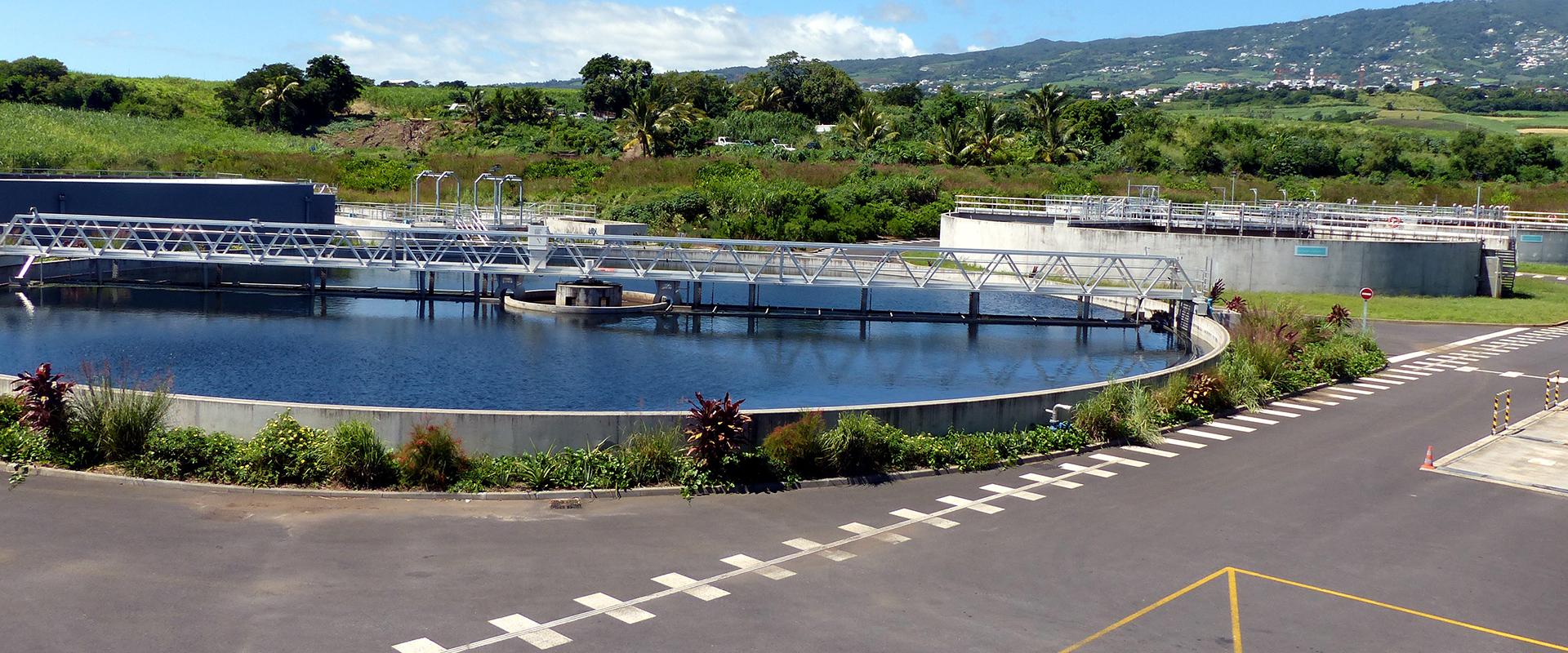
Cover of the thematic file.
© BRGM
Wastewater reuse: an alternative solution
Reusing wastewater represents an alternative solution that could reduce shortages, protect the natural resource and contribute to achieving an integrated water management system. With fifty years' experience in the field of hydrogeology, BRGM has established itself as one of the world's major players involved in the global challenge of protecting water resources, notably through its NouvEau framework project.
The world is going through an era in which global water resources are deteriorating at a worrying rate, both in terms of quantity and quality. This is due to a combination of several factors: a lack of urban sanitation and wastewater treatment, excess use of fertilizers and pesticides in intensive agriculture, industrial or transport-related accidents, poor waste management, urban and industrial discharges, etc.
Protecting water resources is one of major concerns of the European Union's 27 Member States, which are required to return their groundwater to a good quantitative and chemical status by 2015, in line with the Water Framework Directive (WFD). In order to implement a water-management policy that is compatible with sustainable development, France has set out very strict criteria in its Environmental Code concerning discharges into water tables, in accordance with the EU directive.
Improving the treatment of the water that is re-injected into the environment from wastewater treatment plants is now a priority in many countries. If wastewater is properly treated, it can be reused to meet the growing demand for water, without drawing on natural freshwater resources. More and more countries are now actively aware of this challenge and have decided to use an increasingly large proportion of recycled water to meet their domestic demand, despite the significant differences between countries in terms of quantitative or qualitative needs and treatment systems.
The benefits of wastewater recycling
- The water can be used two or three times before being discharged into the natural environment.
- Recycling costs half as much as seawater desalination.
- Reduced use of upstream resources and less downstream waste.
- Less energy consumption, linked to pumping and transporting water.
- Reuse of the organic matter present in wastewater, which (after being transformed into biogas) can provide the energy needed to treat the wastewater itself.
- May be transformed into drinking water and used in food, after passing through extensive treatment and being used for groundwater recharge.
- Contribution to the active management of coastal aquifers in order to control the progression of saline intrusion.
- Use in industrial short-loop circuits, with a view to promoting industrial ecology.







